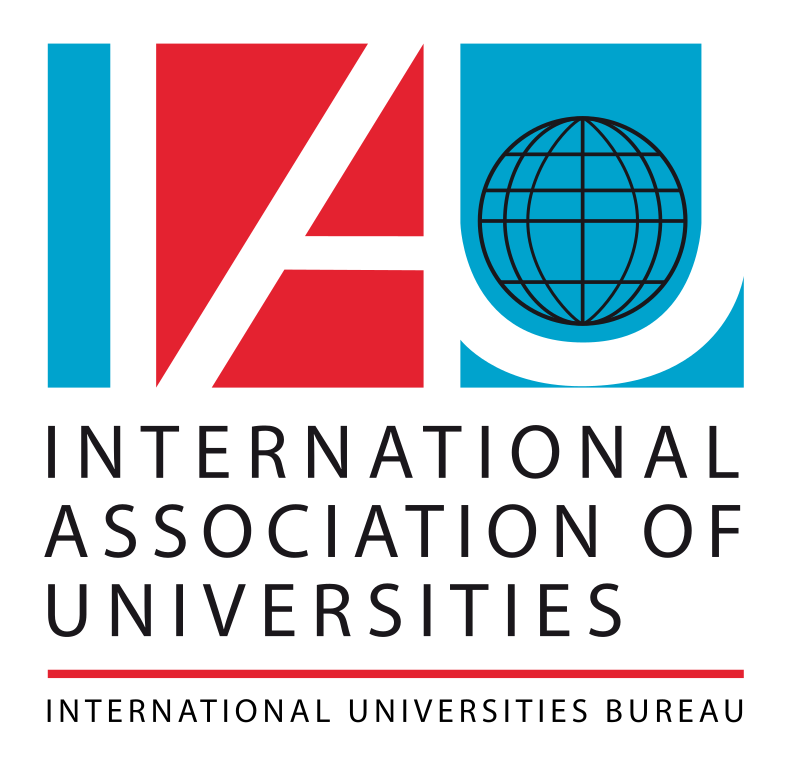Reaching SDG16 through higher education: Are we ready to educate the future leaders?
Date |
Thursday, 3 December 2020 |
Host |
|
Time (CET)
|
14:00 - 15:30 |
Language |
English |

Graphic recording of this event: Camilo Melgar
Five years into the adoption of the UN Agenda 2030 and its roadmap with 17 Sustainable Development Goals (SDGs) and 169 sub-targets, many stakeholders have started work with the Goals, which are particularly valued for their interconnectedness and universality. Realizing that the SDGs will not be achieved if we continue doing things as we have always done them, stakeholders including Member States, various UN entities and academia have come up with new ways and more innovative approaches. Linking various SDGs, such as SDG4 on Quality Education and SDG16 on Peace, Justice and Strong Institutions is one of these new approaches. Higher Education has a special role to play in educating future leaders; leaders are required to promote the rule of law thereby contributing to the achievement of SDG16.
While the global goals need to be translated to strategies sensible to local and regional realities, innovative capacity building, learning, and integrating sustainable development into peacebuilding plans is also crucial and linked to SDG16. This, in turn, does not come without challenges – hence the need to address the implementation of the 17 SDGs also in the peacebuilding context, for which higher education can play a crucial role in post-conflict recovery. Higher Education can contribute through teaching, research, and beyond to SDG16, and to finding solutions to the challenges faced in fragile and conflict-affected contexts. For example, incorporating teaching modules on justice and governance at universities, such as the modules developed by E4J, not only in disciplines related to conflict studies and peace-building, but also beyond, encourage critical thinking and interdisciplinary approaches. After all, students are the future experts and leaders in their region. Furthermore, identifying the synergies between the SDGs and higher education can also benefit resource mobilization and help increase access to higher education. Particularly, there is a strong need for a multi-stakeholder approach, including collaboration with higher education institutions and academics, in order to ensure mutual reinforcement of SDG4 and SDG16.
This session was jointly organized by the International Association of Universities (IAU) and the UNODC Education for Justice (E4J) initiative. The E4J initiative aims to support educators to teach more on issues related to the rule of law, including topics such as crime prevention and criminal justice, anti-corruption, counter-terrorism and organized crime. It aims to build bridges between different stakeholders committed to promote the rule of law, including policy-makers, academics and educators. IAU is the global voice of higher education and understands its role as a facilitator for multi-stakeholder partnerships also outside academia. Furthermore, the IAU Global HESD (Higher education and research for sustainable development) Cluster connects over 80 universities worldwide teaching with and researching on the SDGs, including a subcluster on SDG16.
In this context, the virtual dialogue aimed to stress the link between Higher Education and SDG16. After a short presentation round, in which panelists reflect on the topic with their different backgrounds and perspective (UN organization, research, institutional/university) the dialogue addressed the following guiding questions for discussion:
- How can we support higher education institutions to empower the next generation through teaching, research activities and engaging students and staff with sustainable development, particularly SDG16?
- Which resources (human, and financial) and strategies are needed to build capacities for universities and academics in fragile state contexts?
- What is needed on the policy side and what peacebuilding efforts are required to mobilize and support HEIs?
Panellists
Introduction and moderation
Hilligje van’t Land
Secretary General of the International Association of Universities; Executive Director of the International Universities Bureau
For the past two decades, Dr. van't Land has worked at IAU committed to making higher education a key driver of societal change and has positioned the IAU as lead partner network in the UNESCO Global Action Program on Education for Sustainable Development by promoting the role of higher education and research in addressing the goals set in the context of Agenda 2030 (HESD). Prior to joining the IAU, Dr. van’t Land taught comparative francophone literature at the Universities of Groningen, Laval (Québec) and Avignon et les Pays du Vaucluse. She holds a PhD in comparative contemporary francophone literatures from Groningen University in the Netherlands and completed a post doc research period at Laval University (Québec) before moving back to France. She speaks six languages and produced a number of publications related to higher education.
https://iau-aiu.net/ | https://www.iau-hesd.net/ | @vantlandH | @IAU_AIU | @IAU_HESD | Hilligje van’t Land as a guest in the E4J Global Podcast Series
Speakers
Kariuki Muigua
Senior Lecturer University of Nairobi, FCIArb, Chartered Arbitrator
Dr. Kariuki Muigua holds a Ph.D. in law from the University of Nairobi, where he also teaches at the law faculty and other institutes and is currently serving as chair of the Private Law department. He is a Lead Consultant and Expert at an Environmental Law and Policy Consultancy firm. He has been appointed by the Chartered Institute of Arbitrators (CIArb)-Kenya and other institutions as a sole arbitrator and serves as CIArb Regional Trustee for Africa. He has authored several books on environmental management, natural resources and justice. Muigua is an Advocate of the High Court of Kenya of over 26 years standing.
Terry Beitzel
Professor of Justice Studies and Director of the Mahatma Gandhi Center for Global Nonviolence, James Madison University, USA
Dr. Terry Beitzel is Professor of Justice Studies and director of the Mahatma Gandhi Center for Global Nonviolence, James Madison University, USA. His research interests include nonviolence, conflict theory, peacebuilding, restorative justice, and international human rights. Furthermore, he serves as editor of the International Journal on Responsibility. Beitzel studied conflict resolution at George Mason University and history of science at Harvard University.
https://www.jmu.edu/gandhicenter/
Sansom Milton
Senior Research Fellow at the Center for Conflict and Humanitarian Studies (CHS) in Doha, Qatar
Dr. Sansom Milton is a Senior Research Fellow at the Center for Conflict and Humanitarian Studies (CHS) in Doha, Qatar. Prior to joining CHS, he was a Research Fellow at the Post-war Reconstruction and Development Unit at the University of York. His research interests include conflict analysis and mediation, humanitarian policy, post-conflict recovery, and higher education in emergencies and reconstruction. His book ‘Higher Education and Post-conflict Recovery’ was published by Palgrave Macmillan in 2018 and he has published in leading journals including Disasters, Higher Education, Journal of Intervention and Statebuilding, and the International Journal of Educational Development.
www.dohainstitute.edu.qa
Bianca Kopp
Global Coordinator of the higher education component of the Education for Justice (E4J) initiative, UNODC
Bianca has been working for the United Nations since 2010, including for the UN Counter-Terrorism Implementation Task Force, the UN Democracy Fund, and for various sections in the United Nations Office on Drugs and Crime. Prior to this, she was working for the Austrian Ministry of Foreign Affairs and as a researcher and lecturer at the Department of Political Science of the University of Salzburg, Austria. As a survivor of the terrorist attack on the UN in Nigeria in 2011, she is a strong advocate for the role education has in countering radicalisation and in strengthening rule of law worldwide.
https://www.unodc.org/e4j/en/tertiary/index.html
Fatma Al-Maadheed
Education Specialist, Office Of The Assistant Undersecretary For Private Education
Dr. Fatma Al-Maadheed is an experienced researcher and analyst in social science and humanities. A holder of Ph.D. from the University of Oxford with 20 years’ experience in the field of Education working at Qatar University, Qatar Foundation and Education Above All. In the latter she worked with international institutes such as UNESCO-IIEP, IBE, CfBT and UNESCO Qatar as a consultant. Currently working as an Academic Consultant for the Private Education Sector at the Ministry of Education and Higher Education in Qatar. Her particular interest is in educational policies and strategies within the fields of primary education, bilingual education, and teachers provision.
 Back to Day 3
Back to Day 3
 To top
To top








